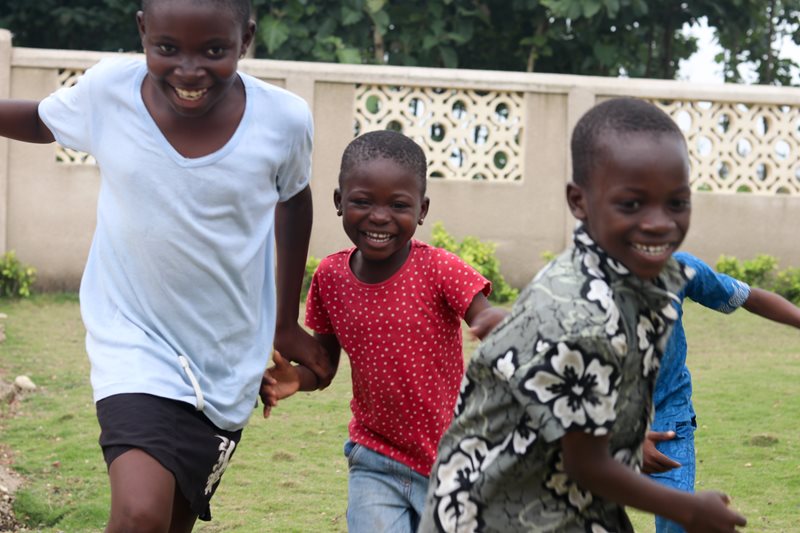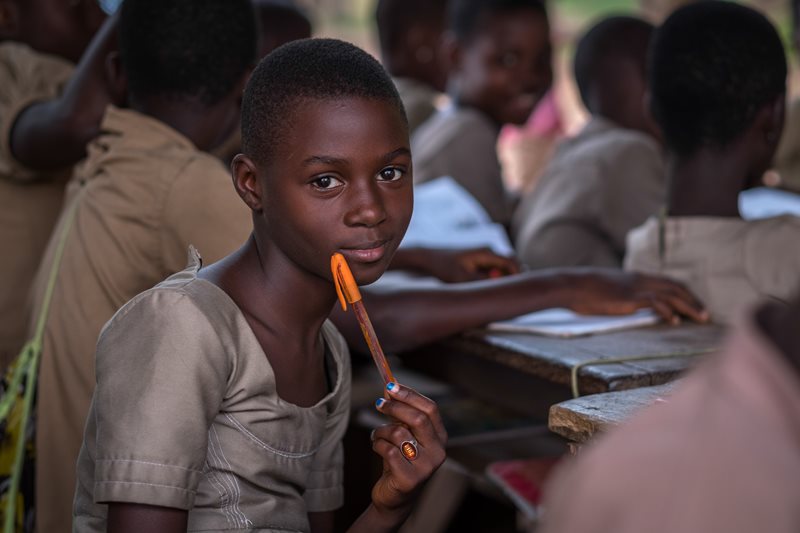Children lack access to education and basic services

Around 80,600 people live in the city of Atakpamé. It is situated in the Plateaux region of Togo, around 160 km from the capital city of Lomé. The population lives off the textile industry and farming. They mostly grow food to feed themselves, but some also harvest coffee, cocoa and cotton for commercial purposes.
The access to clean drinking water and sanitation facilities needs to be improved in the region. Only 38% of the population has access to drinking water. This is especially serious in an area that is often affected by natural disasters. Natural disasters have devastating effects on the lives of families who live off farming. They also lead to an increase in illnesses such as cholera and typhoid fever. These families need access to medical care and support to rebuild their homes and livelihoods.
The lack of suitable education remains a concerning issue in the province. Although around 80 percent of children go to primary school, the figure drops to only 29 percent for secondary school. Girls are more likely to drop out than boys. The quality of teaching needs to be raised, especially as in the Plateaux region 30 percent of teachers are volunteers. Many school buildings themselves, including the sanitation facilities, need to be rebuilt.
Most children drop out of school because they have to work to support their family. Nearly 74 per cent of children in the Plateaux region work, mostly in agriculture, fishing, as domestic servants, or selling food on the streets.
Vulnerable families need support in Atakpamé
The fragile social and economic situation results in families often struggling to take care of their children. The absence of a steady source of income means that families cannot meet the needs of their children. These children are at risk of losing the care of their parents or families, dropping out of education and being forced to work in order to survive.
These families and children need support so that they can stay together.
What we do in Atakpamé

SOS Children's Villages provides different kinds of assistance to the local communities: family care for children who have lost parental care, support to vulnerable families, and access to schooling, training, and medical care.
Strengthen families and communities: We work closely with the families in the neighbourhood and aim to support them so that they can stay together. Most of the families who seek our help are single parents or headed by grandparents. We ensure that children have access to education and essential health and nutritional services. We strengthen the support systems in the community so that families have someone to turn to when they need help.
Care in families: Children who have lost parental care can find a loving home in SOS families or foster families that SOS Children’s Villages trains, supports and monitors. In these families, the children can grow up with their siblings in an environment full of love, respect and security. The families live in different neighbourhoods throughout the town, and so they are fully integrated in the community.
We also have a transit home, which provides care to children in emergency situations. While they are in our care, we assess whether they can return to live with their families, or live in some other type of care.
Education: We try to ensure that children stay in education for as long as possible. We work with local schools to improve the quality of education by training teachers. In 2018, we joined partners in renovating school buildings. We have also built up a library, where children are encouraged to spend time reading or learning.
Support for young people: We support young people until they can live independently. We run training so that they can learn new skills. They also have access to other workshops, for example, on health issues.